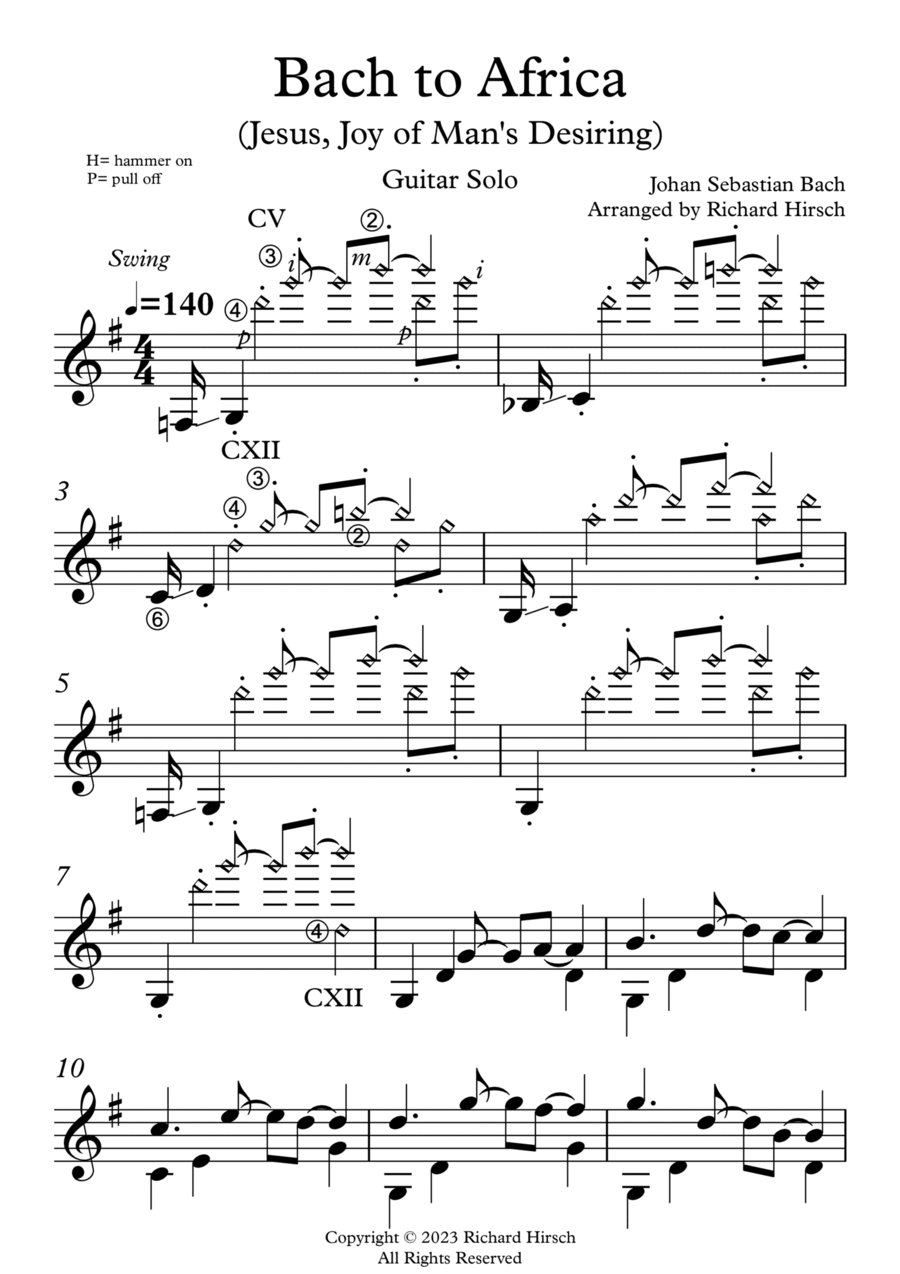Solo Guitar - Level 5 - Digital Download SKU: A0.1237543 Composed by Johann Sebastian Bach. Arranged by Richard Hirsch. Baroque,Christian,Multicultural,Spiritual,World. Individual part. 11 pages. Richard Hirsch #833059. Published by Richard Hirsch (A0.1237543). I offer an arrangement of Bach’s all-time favourite Jesus, Joy of Man’s Desiring in an African inspired rendering for solo classical or acoustic guitar. The arrangement uses lots of natural harmonics in an attempt to mimic the African kalimba style of music. The arrangement goes in 4/4 time in polyrhythm with a second tier of accents at 2, 2&, and 4 with a slight swing. The polyrhythm makes the final chord sound like an upbeat! The low bases are notated as quarter notes and should be played so that they do not ring out. They are not muted (staccato), except where notated, but they should be kept short to give the piece a bouncy character.The arrangement contains the main melody and chorus sections of the original in G major, although I have changed the original in a number of ways. The first melody and chorus section in G major is prefaced by several bars of natural harmonics and is repeated only after the melody and chorus section in the key of A minor. Natural harmonics appear in many places in the piece interwoven with Bach’s original melody and chorus. I think the natural harmonics give the piece a really glorious ring. The present arrangement incorporates many sections of a sister arrangement of the piece that I published recently that follows the original more closely and works as an introduction to the music with extensive left and right hand fingerings and tablature for intermediate students of guitar. This arrangement, considering the many natural harmonics, staccatos, tempo, and swing, is perhaps better suited for advanced intermediate students of classical or acoustic guitar. With that in mind, I therefore refrain from any extensive left and right hand fingerings for the present arrangement. The piece is a real joy to play and listen to! The tempo for the present arrangement has been set to 140 bpm. I think the pace gives a real swing to the music. The piece may however be played at a faster tempo, e.g. Presto, or somewhere in between. With this great music you can hardly go wrong.The title I have chosen for the arrangement aims to be a play on words as in many English speaking parts of the world the name Bach often rhymes with the word ‘back’ as in a return to some place or time. ‘Bach to Africa’ is then an allusion to humanity’s primordial roots in Africa. Rejoice!
